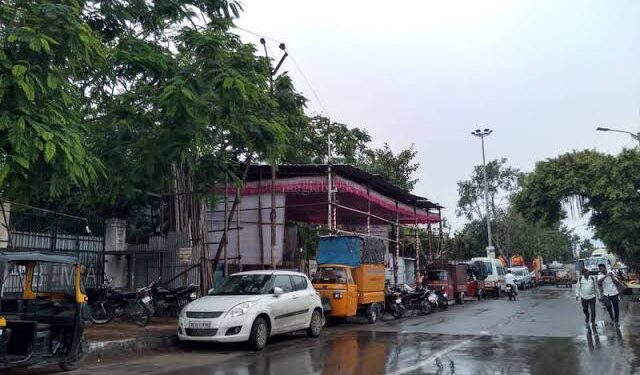Special Correspondent
Pune: Residents and business owners in the industrial area of Ramtekdi, Hadapsar, Pune, are grappling with severe water wastage at the Pune Municipal Corporation’s (PMC) water filling station, a problem that has persisted for three years. The excessive water leakage not only damages local roads but also worsens public health conditions by fostering mosquito infestations.
Despite numerous complaints from businesses in the area, the problem remains unresolved, leading to mounting frustration. The constant water spillage has caused roads to become perpetually wet, resulting in road deterioration and creating a breeding ground for mosquitoes. This situation has contributed to the spread of diseases like malaria and dengue, making it a pressing health concern for the local community.
Person in Ramtekdi, described the ongoing difficulties: “The roads are in terrible condition, and they are always wet because of the continuous water flow. This creates a serious mosquito problem, which affects everyone working here.” This concerns are shared by many, as the water accumulation on the roads is not only hazardous but also contributes to significant infrastructure damage, with potholes and cracks becoming more prevalent over time.
Local businesses have been severely impacted, with employees struggling to navigate the slippery, damaged roads, which hampers productivity. The water leakage has compounded these issues, making it harder for businesses to function efficiently. Mishra added, “It’s not just the roads; the water accumulation makes it difficult for our employees to move around and disrupts business operations.”
Along with the deteriorating infrastructure, the rise in mosquito-borne diseases has raised alarms among residents and business owners. Stagnant water creates the perfect breeding environment for mosquitoes, which thrive in these conditions, posing a serious public health threat.
Despite repeated appeals to the PMC, including numerous letters sent by local businesses, the issue remains unaddressed. Residents and business owners are now questioning why the authorities have failed to take timely action to resolve these concerns, which have negatively impacted both daily operations and the overall quality of life in the area.
The situation in Ramtekdi highlights the need for urgent intervention from the PMC to tackle water wastage, repair the infrastructure, and address the growing public health risks. Until then, the local community continues to endure the damaging consequences of inaction.


















